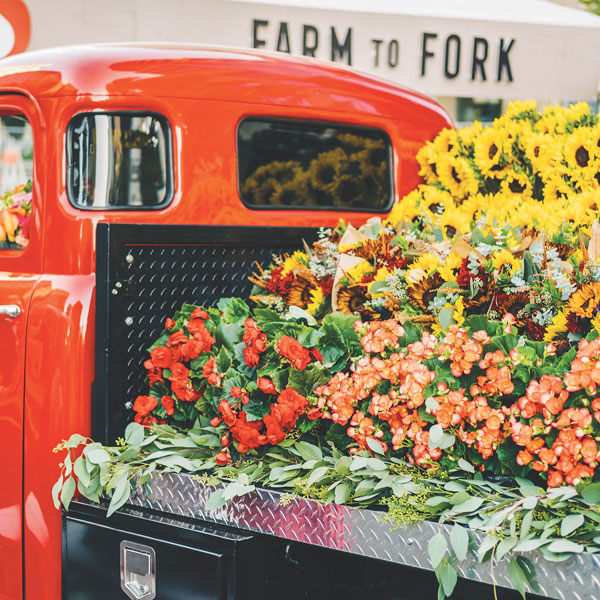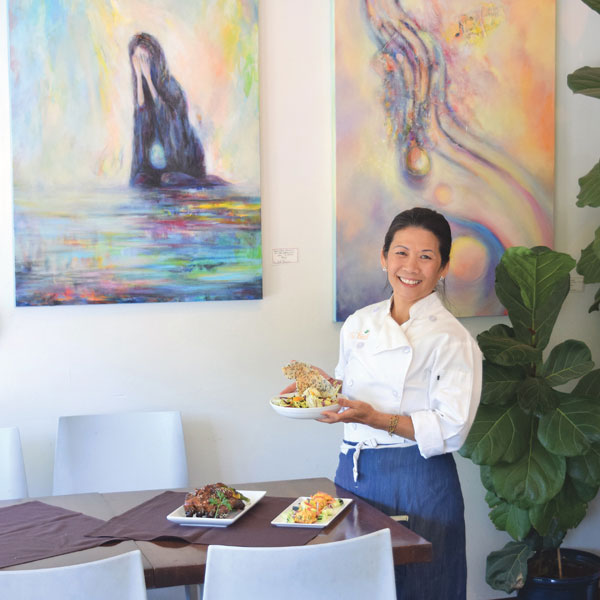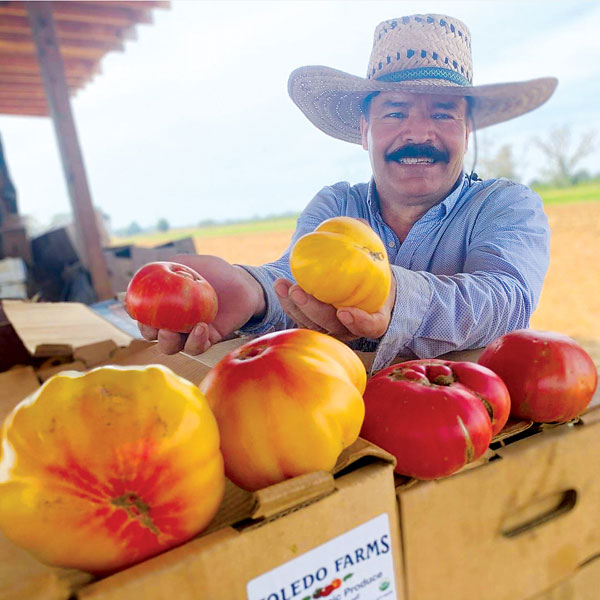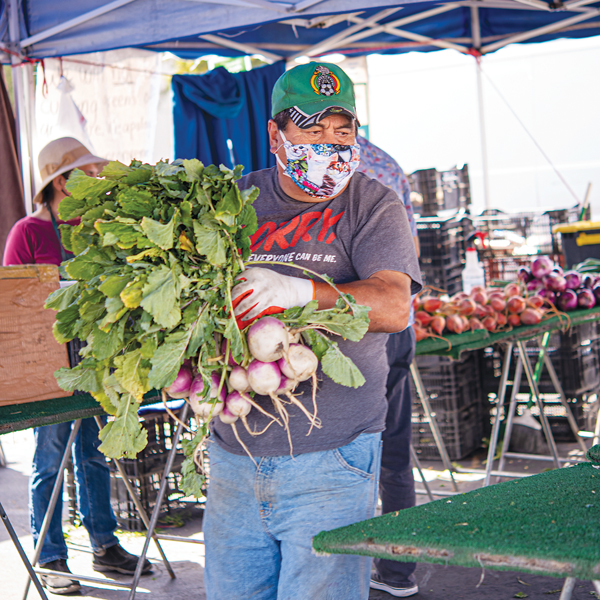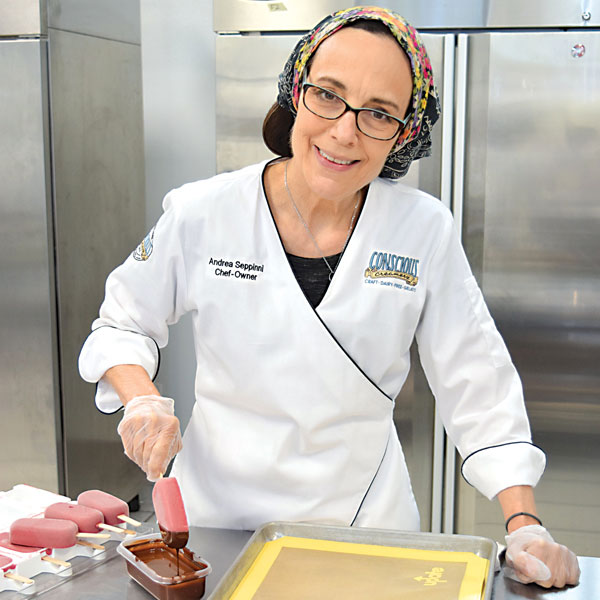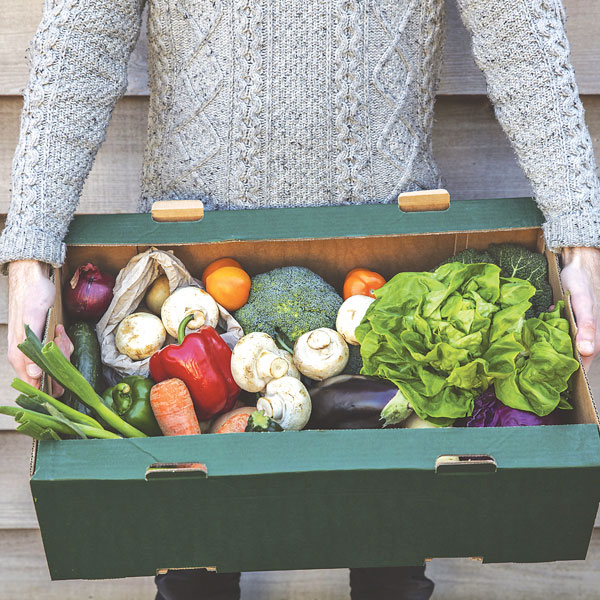
Aug 29, 2021
Last year at this time, I was writing about the “squashed” Farm-to-Fork Festival due to the pandemic. Now it’s back and blooming and better than ever.
Sacramento’s beloved music and food street festival returns to the Capitol Mall Friday and Saturday, Sept. 17–18. Attendees will find local foods, wines, craft beer, cooking demonstrations and more, all within view of the Tower Bridge and state Capitol.

Jul 28, 2021
The family legacy runs between a village restaurant in Thailand and Midtown, where customers feast on tasty dishes created from farmers market produce with spices grown around the world.
Suleka Sun-Lindley is owner and chef of Veg Café, which sits atop Thai Basil, her other restaurant at 25th and J streets. She grew up in Northeastern Thailand, watching her mother and aunts pick fresh produce from an outdoor market for their restaurant nearby.
Sun-Lingley recalls getting up at 4 a.m. to visit the market, buy vegetables and fruit, and return to the kitchen before 8 a.m. to cook for the morning crowd. In the afternoon, they would hit the market again for fresh dinner ingredients.

Jun 29, 2021
Tomatoes are so in this season.
Summer has arrived and farmers markets are bursting with freshly picked produce. Blackberries and apricots drip with juice. Cucumbers and corn are dressed in bright greens and yellows. To top it all off are tomatoes: cherry, beefsteak, green zebras, even Mr. Stripey heirlooms.
Many local farmers are vendors at neighborhood farmers markets and sell their tomato varieties throughout the year. The popularity of tomatoes runs deep in local history. For decades over the past century, at least five canneries operated in Sacramento.

May 28, 2021
With a filled stamp card from The Upper Crust Baking Company, I happily make my way to the Certified Farmers Market under the W/X Freeway. It’s a bright Sunday morning and I’m eager for a fresh loaf of birdseed bread. But when I turn the corner along Southside Park, I don’t see the cars, vendor umbrellas or usual market bustle. It’s empty. Confused, disappointed and breadless, I turn around to walk home.
Had I ventured further under the Highway 50 overpass, I would have found the answer: Posters taped to concrete pillars explained where the market went. A 10-month construction project forced the weekly Certified Farmers Market to temporarily relocate. The market will be in the parking lot of Arden Fair Mall behind Sears until December.

Apr 29, 2021
Conscious Creamery has been mixing up scrumptious, small-batch gelato by hand since 2016. The business operated out of a commercial kitchen, but now the vegan treat shop has a storefront in Oak Park.
For owners Andrea and Kevin Seppinni, choosing the location at 3400 Broadway was like waiting for the perfect pint of cookies and cream. Says Andrea, “We’re thrilled to be opening there specifically. It just feels right and we’ve been welcomed so far. It feels like home to me.”

Mar 28, 2021
Few things beat picking a ripe tomato from the backyard or biting into a juicy pear from your own fruit tree. But for those without time or space for their own gardens, the next best thing is Community Supported Agriculture.
CSA is a partnership between a farm and a group of subscribing members, and creates a relationship between the production and consumption of farmed food. Members make a commitment to support the farm throughout the season and purchase a share of the harvest, which is usually delivered weekly to a convenient drop location.
